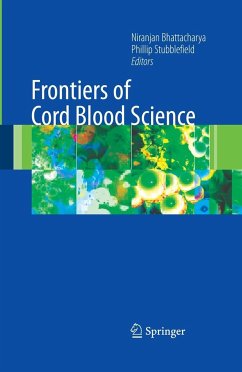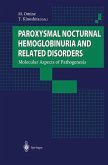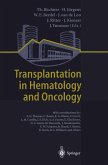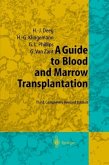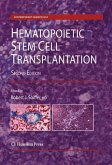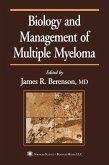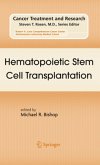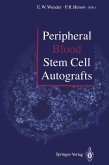Cord blood is a significant source of hematopoietic stem and progenitor cells for the treatment of blood and genetic disorders. Cord blood is also an alternative to embryos as a source of tissue for regenerative medicine. Cells from cord blood have been shown to transdifferentiate into nonhematopoietic cells, including those of the brain, heart, liver, pancreas, bone, and cartilage, in tissue culture and in animal systems. Recently it has been demonstrated that both cardiac and glial cell differentiation of cord blood donor cells occurred in recipients of unrelated donor cord blood transplantation as part of a treatment regime for Krabbe disease and Sanfilippo syndrome. These observations raise the possibility that cord blood may serve as a source of cells to facilitate tissue repair and regeneration in the future. CD34 stem cell-rich umbilical cord whole blood transfusion has the potential to have an immediate benefit of better tissue oxygenation with an additional delayed benefit of possible engraftment of umbilical cord stem cells.
From the reviews:"The editors and authors of this book not only address current clinical science and banking of umbilical-cord blood, but also advance new concepts in medical therapeutics that use umbilical-cord blood. ... This book provides a clear summary of work that provides clues to the unique molecular and cellular biology of stem cells ... . The editors of this book ... making Frontiers of Cord Blood Science a valuable reference for researchers and clinicians who are interested in the evolving field of cellular therapies." (Mary J. Laughlin, New England Journal of Medicine, Vol. 361 (3), July, 2009)"Studies with cord blood present a new field of science. It is a source of hematopoietic progenitor and stem cells, and enables investigation in genetics, immunology, etc. The book also explores possible future uses for stem cell transplantation and other therapeutic applications. A timely text." (Pediatric Endocrinology Reviews, Vol. 7 (3), March-April, 2010)"The contens of this book are extremely important for ... the field of transplantation of umbilical cord blood stem cells. ... The extensiveness of the topics covered makes it a useful guide for specialists in this sector. ... text shall be responsible for spreading the knowledge acquired to date and, therefore, for inducing researchers to explore all possible fields of future applications ... . text to be of high scientific importance and are certain it will lead to further progress in clinical research and application." (Clinical and Experimental Obstetrics and Gynecology, Vol. XXXVII (3), 2010)

